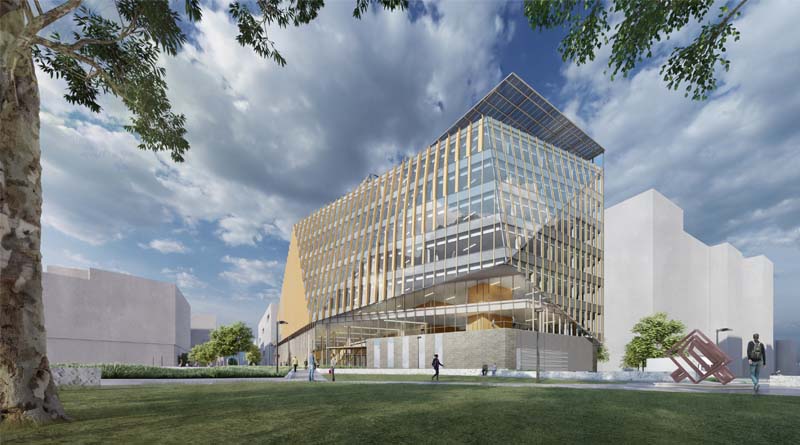By Eric Althoff
ALEXANDRIA, Va.—Aircraft manufacturer Boeing has been named as a foundational partner for the to-be-built Virginia Tech Innovation Campus in Alexandria, located in the suburbs of Washington, D.C. Boeing, which has worked with Virginia Tech for decades, will be kicking in $50 million, which will go towards the school’s scholarships, recruitment of faculty and researchers, as well as funding pathway programs for underserved K-12 students who are looking to pursue a college education in the STEM fields. Boeing’s donation ties for the largest gift ever made to Virginia Tech.
Virginia Tech’s main campus is located in Blacksburg, Va., but the new Tech Innovation Campus will give the university a prime hold on real estate close to the nation’s political center and government sectors, which employ thousands of scientists. Virginia Tech aims for the Innovation Campus to be the most diverse graduate technology campus in the country.
Among other uses, funds donated by Boeing will be utilized to fund PhD fellowships, a student “success center” and a technology leadership program. In addition, the money will be used for a “scalable” K-12 STEM engagement program as well as youth programs aimed at expanding technology programs availability for younger students both near and far.
The 65-acre plot where the campus will be sited is being envisioned as a tech corridor for the city of Alexandria, further enriching this already-prosperous community on the Potomac River. Last year, the school reported that University Architect Liza Morris was working with designer SmithGroup and master planner Sasaki on the futuristic-looking campus.
In addition to its diversity initiative—a cornerstone of the school’s philosophy—an emphasis will be placed on directing students toward industry mentors as they navigate their coursework. Other programs will be tailored specifically to veterans.
“We are extremely grateful to Boeing for this extraordinarily generous show of support,” Virginia Tech President Tim Sands said in a recent statement. “This is a milestone moment in our university’s history, and it will propel our work to help establish the greater Washington, D.C., area as the world’s next major tech hub.”
Boeing President and CEO David Calhoun, himself a Virginia Tech alumnus, praised his alma mater’s historic vision to tackle the technological issues not only of the present but those that haven’t even been imagined yet.
“Boeing is dedicated to advancing equity and inclusion, both within our company and in our communities, and we look forward to partnering with Virginia Tech to build a robust and diverse STEM talent pipeline to drive the future of aerospace,” Calhoun said.
Sen. Mark Warner (D-Va.) echoed this positive atmosphere and can-do spirit.
“The U.S. must maintain international leadership in advancing technology, and talent is our most critical resource,” Warner said. “It’s exciting to see a world-class company like Boeing invest in a program that will help bolster the depth of our nation’s tech talent and drive economic growth in the Washington, D.C., region.”
Said Letitia Long, vice rector of the Virginia Tech Board of Visitors, an alumna of Virginia Tech’s College of Engineering and a resident of Alexandria: “I hope every talented student who has an interest in computer science or computer engineering sees themselves at this campus one day.”
According to the U.S. Bureau of Labor Statistics, the computer science and information technology fields will add 531,200 jobs by 2029. Virginia plans to produce 31,000 computer science and engineering graduates over the next two decades as part of its collaboration with 11 universities in the state as part of its Tech Talent Investment Program.
The university expects to welcome students, faculty and staff into the completed building in fall 2024.
When completed, the 300,000-square-foot building will provide instruction, research, office, and support spaces for graduate-level programs in Computer Science and Computer Engineering, as well as select other programs.


